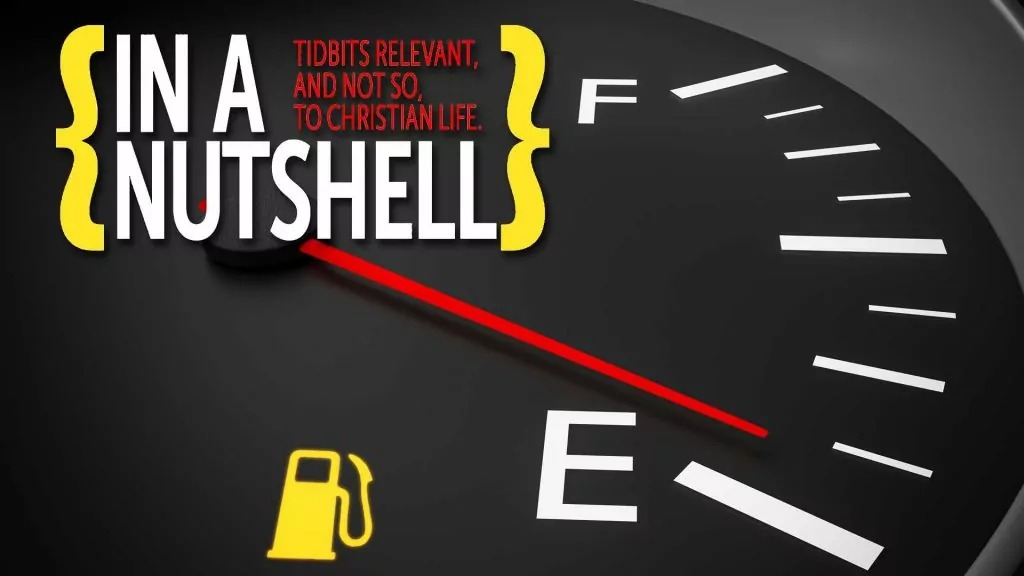Famous phrases from the Bible
The influence of God’s Word on our culture is such that even those who have never cracked open a Bible aren’t likely to name their kids Jezebel, Judas, or Cain. There are, however, some common phrases that even believers might not know have biblical origins.
- A drop in the bucket – Isaiah 40:15 says, “Surely the nations are like a drop in a bucket; they are regarded as dust on the scales; he weighs the islands as though they were fine dust.”
- The writing is on the wall – In Daniel 5, King Belshazzar sees “the fingers of a human hand” appear and write a message on his wall which he then gets Daniel to interpret…and it isn’t good news for the king who is killed that very night.
- Rise and shine – This morning wake-up call, common to mothers the world over, may come from the call for God’s people to “Arise, shine” in Isaiah 60:1.
- Seeing eye to eye – Isaiah 52:8, in some translations, about watchmen on the city walls being in agreement.
- Go the extra mile – Jesus urges us to this in Matthew 5:41
- Reading between the lines – This doesn’t come from any specific chapter or verse, but from a translating practice done to some Latin Bibles, where another language would be written directly above the Latin text.
Asked and answered
It’s a question we’ve all heard: how much wood could a woodchuck chuck if a woodchuck could chuck wood? But does anyone know the answer? It turns out some researchers at Cornell University discovered that if you provide woodchucks with chunks of 2 by 4s, then they can chuck wood…even if they normally choose not to.
“Chucking” of a sort does occur when they dig out their burrows, though this involves dirt, not wood. Naturalist Richard Thomas estimated that a woodchuck burrow is about 35 cubic meters. Making a bit of a leap of logic he then presumed, if they can throw that much dirt, then they should be able to throw just as much wood, right? And a pile of wood with that volume would weigh, around 700 pounds. So there you have it!
SOURCE Uncle John’s Bathroom Reader Plunges Into the Universe, pages 445-446
J.C. Ryle on backsliding
“It is a miserable thing to be a backslider. Of all unhappy things that can befall a man, I suppose this is the worst. A stranded ship, a broken wing, a garden overrun with weeds, a harp without strings, a church in ruins – all these are sad sights; but a backslider is a sadder sight still.
“That true grace shall never be extinguished, a true union with Christ never broken off, I feel no doubt. But I do believe that a man may fall away so far that he will lose sight of his own grace, and despair of his own salvation. And if this is not hell, it is certainly the next thing to it! A wounded conscience, a mind sick of itself, a memory full of self-reproach, and a heart pierced through with the Lord’s arrows, a spirit broken with a load of inward accusations, all this is a taste of hell. It is hell on earth. Truly that saying of the wise man is solemn and weighty: ‘The backslider in heart shall be filled with his own ways’ (Prov.14:14).
“Now, what is the cause of most backsliding? I believe, as a general rule, one of the chief causes is the neglect of private prayer. Of course, the secret history of falls will not be known until the last day. I can only give my opinion as a minister of Christ and a student of the heart. That opinion is, I repeat distinctly, that backsliding generally first begins with the neglect of prayer.
“Bibles read without prayer, sermons heard without prayer, marriages contracted without prayer, journeys undertaken without prayer, residences chosen without prayer, friendships formed without prayer, the daily act of prayer itself hurried over or gone through without heart, these are the kinds of downward steps whereby many a Christian descends to a condition of spiritual palsy, or reaches a point where God allows him to have a tremendous fall.”
English is a weird language
If you’ve ever wondered why English is thought to be one of the harder languages to learn, contronyms are a clue: these are words that mean their own opposite. These examples should have us commiserating with our immigrant parents or grandparents who had to somehow make sense of them all:
- Apology: repenting from an action or defending it
- Bolt: to keep from moving or to run away
- Clip: to attach something on or to cut it off
- Dust: to remove fine particulate matter or to add it.
- Fast: describing something stuck firmly or moving quickly
- Literally: factually or metaphorically
- Left: still here or already gone
- Resign: only a contronym in writing, where it means either to quit or to sign up again
- Transparent: being invisible or being obvious
- Weather: to be worn away by or to stand up to, the elements
Advanced math
“There are no words to express the abyss between isolation and having one ally. It may be conceded to the mathematician that four is twice two. But two is not twice one; two is two thousand times one.”
– G. K. Chesterton, The Man Who Was Thursday
Did they or didn’t they?
The best quotes aren’t always by the people they are supposed to be by. Sometimes they are altered, improved, and essentially abbreviated versions of something they really did say. Other times, it might be something they said, but no one can find a source to prove it. Regardless some are really worth repeating. Here’s a collection of great quotes credited to the person who is popularly, but probably incorrectly, credited with saying them.
- “Why do bad things happen to good people? That only happened once and He volunteered.” – RC Sproul
- “Love is a game two can play and both can win.” – Eva Gabor
- “If I profess with the loudest voice and clearest exposition every portion of the Word of God except precisely that little point which the world and the Devil are at that moment attacking, I am not confessing Christ, however boldly I may be professing Him. Where the battle rages there the loyalty of the soldier is proved; and to be steady on all the battlefront besides, is mere flight and disgrace if he flinches at that point.” – Martin Luther
- “Silence in the face of evil is itself evil. God will not hold us guiltless. Not to speak is to speak. Not to act is to act.” – Dietrich Bonhoeffer
- “When people stop believing in God, they don’t believe in nothing – they believe in anything.” – G.K. Chesterton
- “You have enemies? Good. That means you’ve stood up for something, sometime in your life.” – Winston Churchill
“Telephone” with a twist
In the game “telephone” one friend whispers a sentence to a friend, and the message gets passed along the line quietly one by one. By the time it gets to the end of the line the message, through repeated “mishears” has been altered, sometimes to an unrecognizable extent, and to the great amusement of all.
In a version of the game called “Predicament and Remedies” the first person shares some kind of “predicament” and their neighbor passes along, not that predicament, but a one sentence, fairly detailed, remedy for it. The person who hears the remedy then has to pass along a one-sentence, detailed predicament that remedy might solve, and so on and so on.
So, for example, if we start with “My scuba airhose is leaking” the next in line might whisper “Wrap duct tape around the hose” to which the next in line might say “my vacumn hose has a hole it it.” The trick here is to leave some room for ambiguity, but not too much. “Buy a new one” wouldn’t be a good fix for any remedy because it is too general and a match for too many things, but something like “learn how to read upside down” would be great fun. The more creative the predicament or rememdy, the funnier the result.












